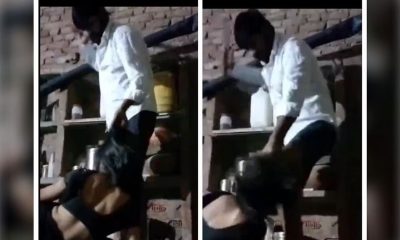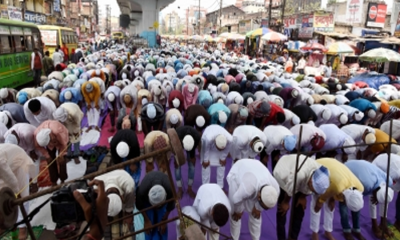Politics
How it all started and ‘Bulldozer Baba’ became BJP’s ticket to victory

The bulldozer politics that originated in Uttar Pradesh nearly two years ago has now become a mascot of the Yogi Adityanath government. The bulldozer – usually seen as a tool of destruction and upheaval – has become a symbol of good governance. Most governments in the country, mainly BJP-led governments, are now betting on the bulldozer that is apparently bringing in more bouquets than brickbats.
The bulldozer first gained prominence in the Yogi Adityanath government in July 2020 when this mean machine was used to pull down the house of gangster Vikas Dubey in Bikru village in Kanpur. Dubey was the main accused in the massacre of eight police personnel and bulldozing his palatial house ensured speedy justice in the terror-stricken area.
Thereafter, the bulldozer was used to demolish the ill-gotten properties of mafia dons like Mukhtar Ansari and Atiq Ahmad, both of whom were behind bars.
The state government happily released photographs and videos of the houses, shopping complexes, hotels and buildings of the mafia crumbling under the power of the bulldozer.
The bulldozer gradually emerged as a symbol of justice against wrong-doers and Yogi supporters, mainly Hindus, cheered the initiative.
In the midst of the assembly election, a local daily named Yogi Adityanath as �Bulldozer Baba’ and this took the BJP campaign to the next level.
Leader after leader spoke about the might of the bulldozer in the elections and how Yogi Adityanath had brought criminals down to their knees with his bulldozer.
The results of the UP assembly elections where the BJP staged a return to power, put the seal of approval on bulldozer politics and the opposition that had tried to project the bulldozer as a symbol of tyranny, was put on the backfoot.
While the results made other states like Madhya Pradesh and Delhi adopt the bulldozer formula with open arms, it also gave Yogi Adityanath the opportunity to pursue this brand of politics even more aggressively in his second term.
The UP police are now targeting those linked to mafia dons on an almost daily basis and people are lapping it up.
Bulldozer Baba’s politics is getting increasingly popular and so is his image as a stern administrator who will spare no wrong doer.
Though there are allegations of the bulldozer politics being selective but the voices of approval are far louder.
The popularity of the bulldozer can be gauged from the fact that a whole range of bulldozer toys are now being sold on e-commerce sites like Amazon and Flipkart.
Yogi Adityanath is being felicitated with miniature bulldozers at various functions and the chief minister is not complaining.
The bulldozer politics, meanwhile, has hurt the Samajwadi Party the most.
The Samajwadi Party had used the bulldozer to hit back at the BJP in its election campaign and Akhilesh Yadav, in his every speech, projected the bulldozer as an example of dictatorship (tanashahi’) of the BJP leadership.
SP leaders drew a parallel between the bulldozer and the excesses of the Emergency but the ploy did not work. In fact, it boomeranged.
The results dampened the Samajwadi spirit because the voters, apparently, approved of the bulldozer politics.
Post-election, the Samajwadi leaders have almost stopped talking about the bulldozer and have reverted to the incidents of crime and the poor law and order situation to hit out at the Yogi Adityanath government.
National News
Mumbai: Cooper Hospital Doctors Raise Alarm As Security Overhaul Leaves OPD Unprotected; MARD Warns Of Mass Leave
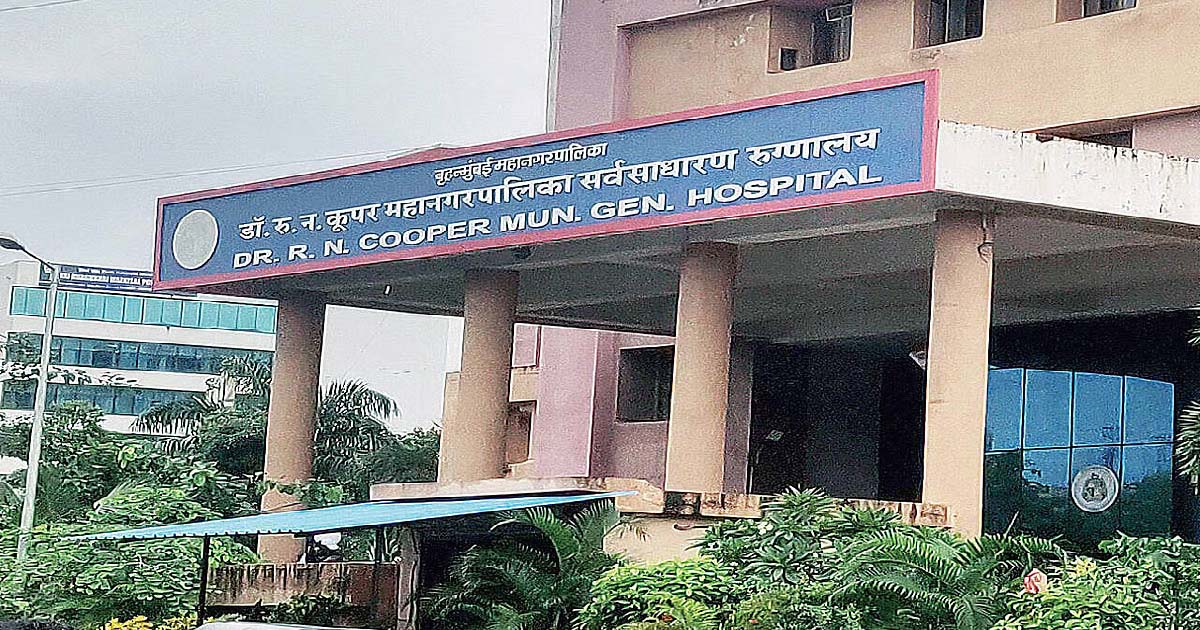
Mumbai, Nov 24: A sudden overhaul of the security system has created confusion among doctors at Cooper Hospital in Vile Parle after they noticed the absence of guards in the Out-Patient Department (OPD).
The hospital has witnessed several assaults on doctors in recent weeks, increasing anxiety among staff and prompting the Cooper Hospital unit of the Maharashtra Association of Resident Doctors (MARD) to raise concerns with the administration.
On November 8, three doctors were attacked by a man after a 60-year-old patient died during treatment. Shockingly, the security personnel present in the emergency ward allegedly remained passive during the incident, raising serious questions about the efficiency of the contracted security agency.
Following the incident, the BMC administration removed around 150 personnel of the outsourced agency and initiated the process to appoint a new one. It later emerged that both the old and proposed agencies were operated by the same individual under different company names.
As the appointment of a new agency will take time, the BMC temporarily deployed its own staff. About 90 personnel were pooled from various departments and assigned to Cooper Hospital. The abrupt shift led to confusion among doctors, who initially believed no security had been deployed.
Chief Security Officer Ajit Tawade said the misunderstanding has now been cleared. “Doctors were not aware that BMC security personnel had been deputed,” he said. Tawade added that 90 guards will be deployed round the clock in three shifts, with fewer staff required at night. Previously, 150 guards were posted across the hospital.
Under the revised arrangement, one guard will be assigned to each floor instead of every ward or OPD, raising concerns about reduced vigilance.
“With limited manpower, we cannot post guards in each ward or OPD. Doctors are demanding the same strength they had with the private agency. We deploy security in the same manner at Sion, KEM and other hospitals. At present, we are functioning with only 50 percent of the required strength,” Tawade said.
MARD president Dr. Chinmay Kelkar said doctors have been assured that security deployment will be gradually increased. “If there is no improvement, we will be forced to go on mass leave,” he warned.
Crime
Thane Shocker: Young Woman’s Body Found Stuffed Inside Suitcase Under Desai Khadi Bridge On Kalyan–Shil Road; Police Launch Murder Probe
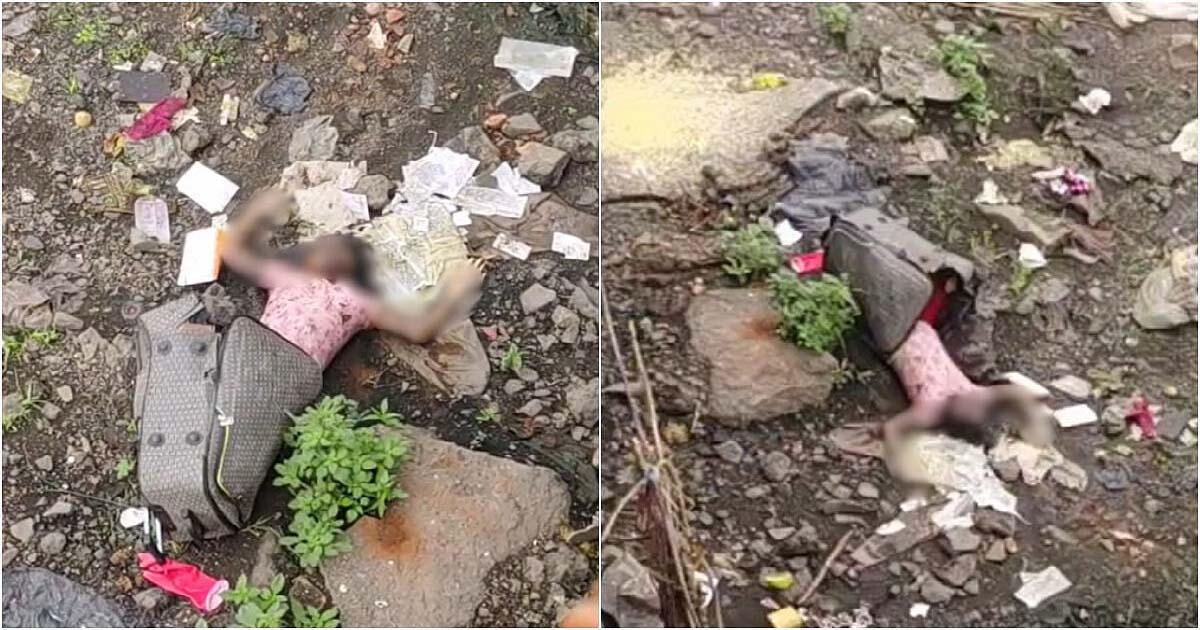
Kalyan, Nov 24: A shocking incident has come to light after the body of a young woman was discovered inside a suitcase under the Desai Khadi bridge on the Kalyan–Shil Road on Monday. The gruesome finding has triggered panic and concern throughout the area, as it clearly indicates a cold-blooded murder.
According to police sources, the age of the deceased woman is estimated to be between 25 and 30 years. The body was packed inside a medium-sized suitcase and dumped beneath the bridge, suggesting that the killers deliberately chose a secluded spot to dispose of the evidence.
Prima facie, officers believe the woman was murdered before being stuffed into the suitcase and abandoned. However, the exact cause of death will be known only after the post-mortem examination.
The identity of the victim remains unknown at this stage. The police have begun checking missing women complaints from Kalyan, Dombivli, Navi Mumbai, Thane, Mumbai and surrounding regions.
Forensic experts have been called to examine the suitcase and surrounding area for fingerprints, blood traces, or any other clues that may help identify the perpetrators.
CCTV footage from nearby locations, toll plazas, and road junctions along the Kalyan–Shil corridor is also being collected and analyzed to trace the vehicle or individuals who might have transported the suitcase.
The Dyghar Police have officially launched a murder investigation and formed a special team to trace the identity of the woman and hunt down those responsible. Police have appealed to the public to contact them immediately if they have information about a missing woman matching the victim’s description.
The brutal killing has sent a wave of shock across the city, raising serious concerns about safety. Police say they are treating the case with utmost urgency and are confident of making a breakthrough soon.
Crime
J&K: ED attaches property valued at Rs 1 crore in money laundering case
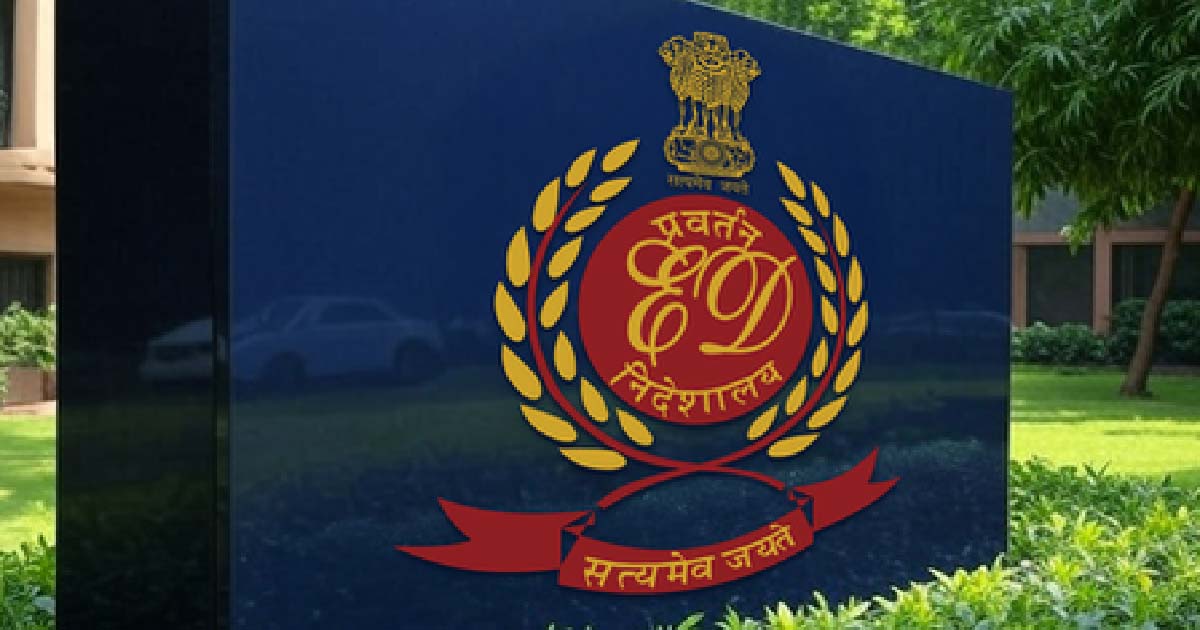
Jammu, Nov 24: The Jammu Sub-Zonal Office of the Enforcement Directorate (ED) in Jammu and Kashmir said on Monday that the agency has attached immovable property worth Rs 1 crore under the Prevention of Money Laundering Act (PMLA), 2002.
A press statement by the ED said, “The Jammu Sub-Zonal Office of the Enforcement Directorate (ED) has provisionally attached immovable property worth nearly Rs 1 crore under the Prevention of Money Laundering Act (PMLA), 2002.
“The provisionally attached property comprises industrial land at Panipat, Haryana, of M/s Vidit Healthcare Private Ltd., Sirmour, Himachal Pradesh, the ED initiated investigation in respect of case registered by the Jammu NCB against M/s Vidit Healthcare (Managing Partner, Neeraj Bhatia) Niket Kansal and others for illegal diversion of a codeine-based cough syrup (CBCS), “Cocrex”, for misuse as intoxicant/drug, from manufacturer, M/s Vidit Healthcare,” the statement added.
“ED investigation revealed that M/s Vidit Healthcare supplied CBCS to entities viz. M/s S.S. Industries, M/s Kansal Industries, M/s Nouveta Pharma, M/s Kansal Pharmaceuticals and N.K Pharmaceuticals (all operated and controlled by Niket Kansal r/o Delhi) during 2018-24, to the tune of about Rs 16.74 crore. Part of such illegally diverted CBCS was supplied to Raees Ahmed Bhat, a resident of Srinagar, from whom large quantities of CBCS was seized on January 14, 2024 by NCB.”
“ED investigation further revealed that M/s Vidit Healthcare earned gross profit estimated to be nearly Rs 2.92 crore as proceeds of crime from the sale of codeine-based cough syrup (CBCS) to entities operated by Niket Kansal viz. M/s S.S. Industries, M/s Kansal Industries, M/s Nouveta Pharma, M/s Kansal Pharmaceuticals and N.K Pharmaceuticals. Earlier in this case, ED has conducted search at the premises of Neeraj Bhatia and Niket Kansal on February 13, 2025, resulting in seizure of cash amounting to Rs 32 lakh and jewellery valued at Rs 1.61 crore from the residential premises of Neeraj Bhatia and in furtherance of investigations, ED has further attached immovable property in the form of land at Panipat of M/s Vidit Healthcare, worth nearly Rs one crore.”
“Further investigation is underway,” the statement said.
-

 Crime3 years ago
Crime3 years agoClass 10 student jumps to death in Jaipur
-

 Maharashtra1 year ago
Maharashtra1 year agoMumbai Local Train Update: Central Railway’s New Timetable Comes Into Effect; Check Full List Of Revised Timings & Stations
-

 Maharashtra1 year ago
Maharashtra1 year agoMumbai To Go Toll-Free Tonight! Maharashtra Govt Announces Complete Toll Waiver For Light Motor Vehicles At All 5 Entry Points Of City
-

 Maharashtra1 year ago
Maharashtra1 year agoFalse photo of Imtiaz Jaleel’s rally, exposing the fooling conspiracy
-

 National News1 year ago
National News1 year agoMinistry of Railways rolls out Special Drive 4.0 with focus on digitisation, cleanliness, inclusiveness and grievance redressal
-

 Maharashtra1 year ago
Maharashtra1 year agoMaharashtra Elections 2024: Mumbai Metro & BEST Services Extended Till Midnight On Voting Day
-

 National News1 year ago
National News1 year agoJ&K: 4 Jawans Killed, 28 Injured After Bus Carrying BSF Personnel For Poll Duty Falls Into Gorge In Budgam; Terrifying Visuals Surface
-

 Crime1 year ago
Crime1 year agoBaba Siddique Murder: Mumbai Police Unable To Get Lawrence Bishnoi Custody Due To Home Ministry Order, Says Report



